Understanding UnitedHealthcare’s Coverage for Addiction Treatment
Recovering from substance use disorder is a complex journey that often requires professional treatment and support. For many, health insurance plays a crucial role in making these services accessible and affordable. UnitedHealthcare, one of the largest health insurers in the United States, offers a range of coverage options for rehab services, including inpatient and outpatient treatments. This article will explore whether UnitedHealthcare covers rehab, the types of treatments included, how to verify benefits, and what to consider when navigating insurance for addiction recovery.
Does United Healthcare Cover Rehab Services?
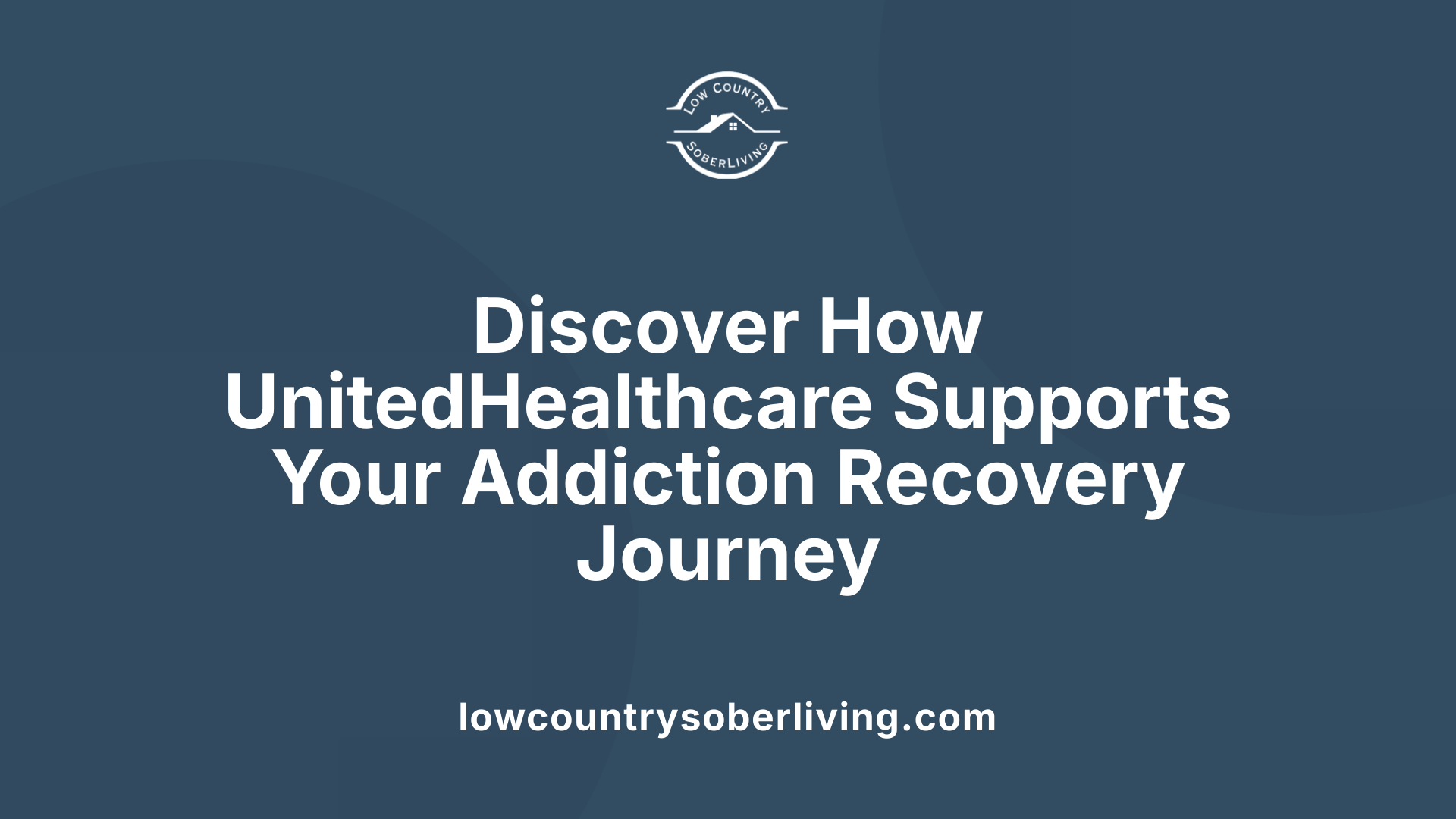
Does UnitedHealthcare cover rehab services?
UnitedHealthcare provides coverage for a variety of drug and alcohol rehabilitation services, making treatment accessible for many members. Their plans typically include coverage for inpatient or residential treatment, outpatient programs, detoxification, and medication-assisted treatment (MAT).
Coverage specifics can vary depending on the individual plan, location, and whether the facility is in-network or out-of-network. Most plans will cover medically necessary inpatient detox, residential treatment, outpatient rehab, and services for co-occurring disorders. To verify exact benefits, members should check their policy details via their online account or contact customer service.
UnitedHealthcare also offers additional support resources, including a 24/7 Substance Use Helpline. This confidential and anonymous helpline provides guidance on treatment options, support, and assistance in locating in-network providers. These resources help ensure members can navigate their coverage options effectively.
In summary, yes, UnitedHealthcare does cover rehab services which include a broad spectrum of addiction treatments. However, guidelines such as prior authorization and network restrictions may apply, making it essential for members to verify their individual coverage details.
For further information, members can search "United Healthcare coverage for rehab" to access detailed resources or speak directly with their provider.
Types of Addiction Treatments Covered by UnitedHealthcare
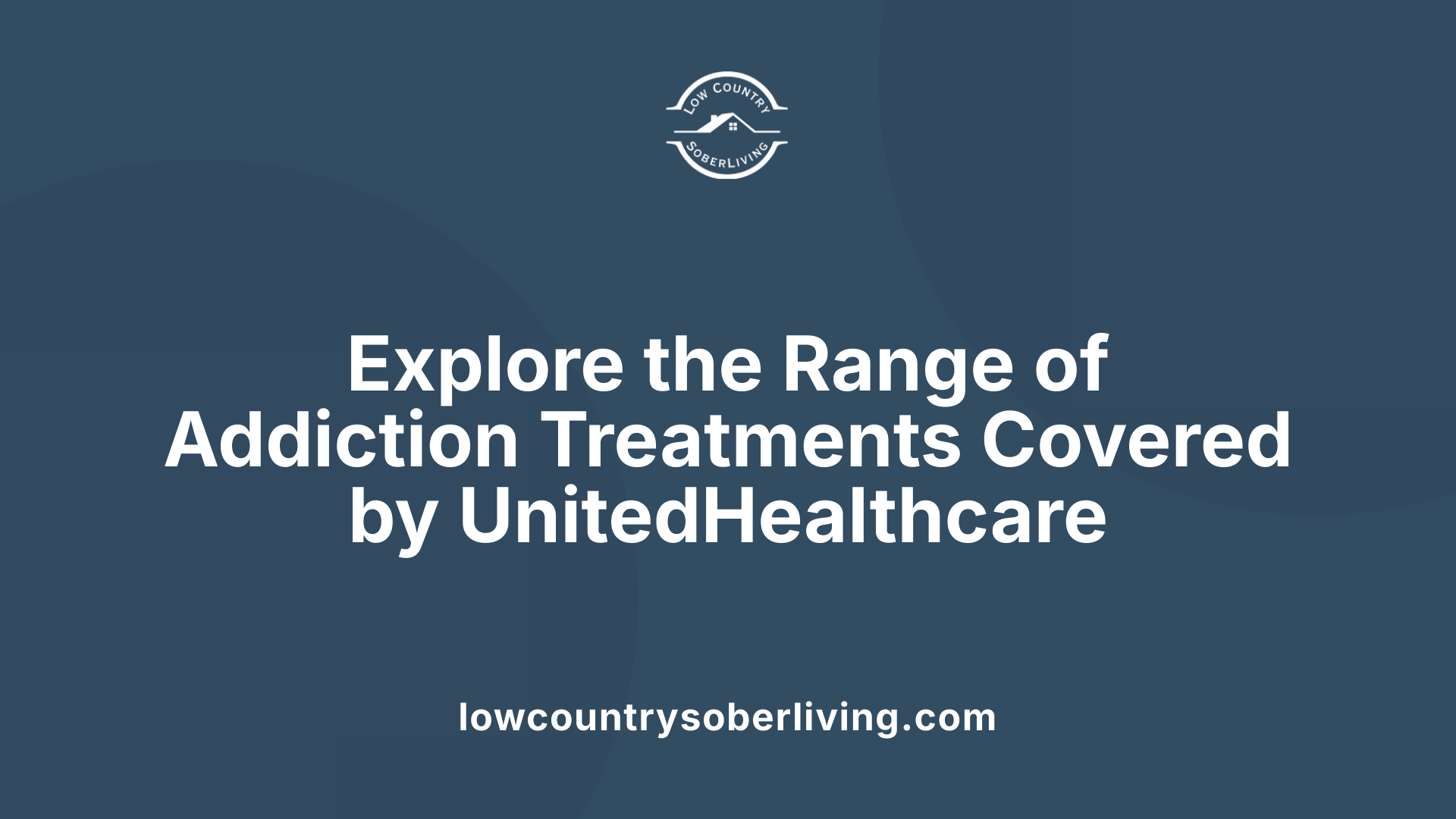
What types of addiction treatments are covered by UnitedHealthcare?
UnitedHealthcare offers comprehensive coverage for various addiction treatments, emphasizing both medical and behavioral health support. Their plans typically include outpatient therapy, inpatient rehab, detox services, and medication-assisted treatment (MAT). This broad coverage aims to support individuals at different stages of recovery.
Inpatient rehabilitation involves stays at specialized facilities where patients receive 24/7 medical supervision, counseling, and therapy. These services are usually covered when deemed medically necessary and often require prior authorization. Outpatient rehab, on the other hand, allows individuals to attend treatment sessions while continuing daily activities, with coverage often including group therapy, individual counseling, and educational programs.
Detox services, including medically-supervised detoxification, are generally covered under UnitedHealthcare plans. Detox is a critical first step in many recovery processes, helping manage withdrawal symptoms safely. Additionally, medication-assisted treatment (MAT), which combines medications with therapy, is covered to help reduce cravings and promote longer-term sobriety.
Coverage specifics can vary based on individual plans and location. Most plans support treatments for common substance use disorders such as alcohol, opioids, cocaine, and methamphetamines. Members are advised to verify their specific benefits through the UnitedHealthcare member portal or by contacting the company directly.
Overall, UnitedHealthcare's coverage aligns with federal guidelines and the mental health parity law, ensuring that addiction treatment is accessible and recognized as essential healthcare. Accessing the right treatment through in-network providers can also reduce out-of-pocket expenses, making recovery more attainable for many individuals.
Verifying Your Insurance Benefits for Rehab
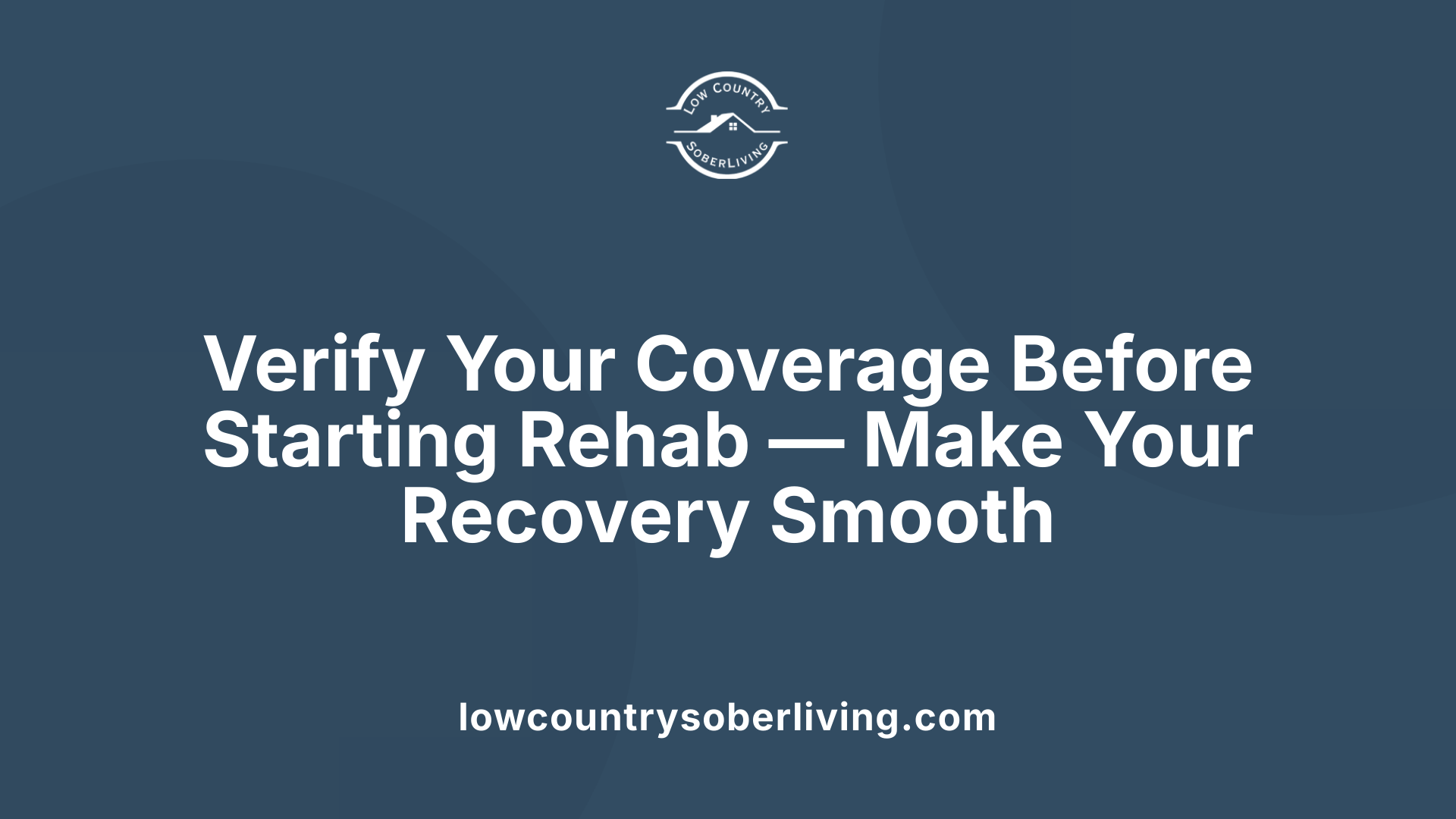
How can I verify my insurance benefits for rehab services?
Knowing what your insurance plan covers before starting treatment can save you time and unexpected expenses. To verify your benefits for rehab services, the most straightforward step is to complete an insurance verification process.
Many treatment centers, like American Addiction Centers or Recovery Beach, offer an insurance verification form. This form asks for your insurance carrier's name, policy number, and personal details. Once you submit this form, an insurance specialist or admissions navigator will review your information.
In most cases, they will contact you within a few hours to a day to confirm whether your insurance covers addiction treatment and to clarify if the facility is within your network. This step ensures you understand your benefits, any copayments or deductibles, and whether prior authorization is needed.
Additionally, contacting your insurance provider directly can provide detailed information. Call the customer service number found on the back of your insurance card. Ask about coverage limits for detox, inpatient, outpatient, and medication-assisted treatment. Clarify if there are any exclusions or special requirements for your plan.
Using the online member portal is another effective way to verify benefits. Many insurance companies, including United Healthcare, offer secure portals where you can log in, review your benefits, plan details, and network provider lists. This self-service feature can help you verify coverage from the comfort of your home.
In essence, combining these steps—filling out verification forms, contacting the insurer, and reviewing online portal information—will give you a clear understanding of your insurance coverage for rehab services and help you plan your recovery journey with confidence.
Coverage Details for Inpatient and Outpatient Addiction Treatments
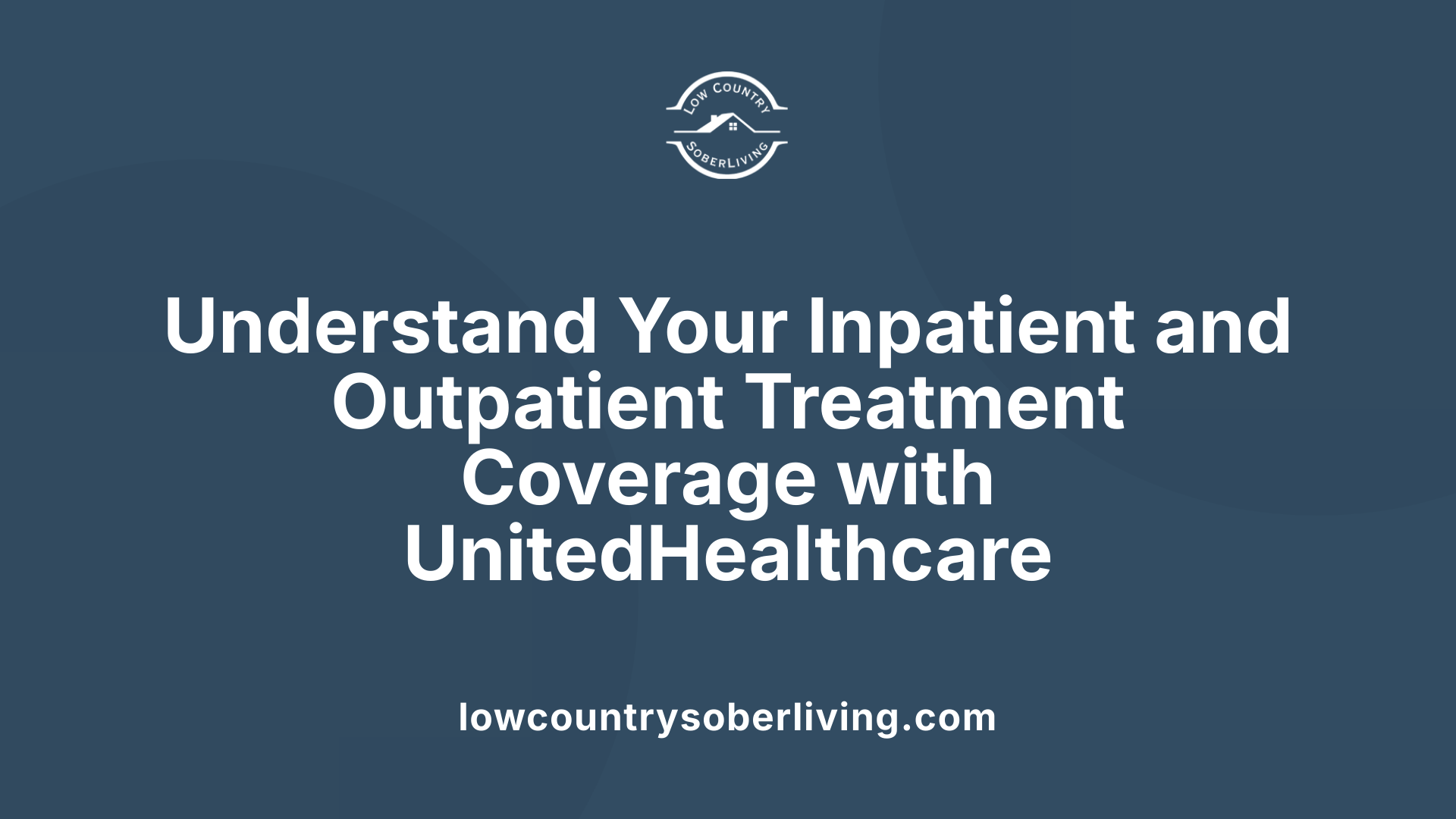
What coverage details does UnitedHealthcare provide for inpatient and outpatient addiction treatments?
UnitedHealthcare offers comprehensive coverage options for various addiction treatments, including inpatient and outpatient programs. Policyholders can access services such as drug and alcohol rehab, detoxification, inpatient hospitalization, outpatient detox, and community-based treatment. The extent of coverage—covering aspects like medications, therapy, counseling, and medical supervision—depends on the specific insurance plan, geographical location, and provider network.
For inpatient care, most UnitedHealthcare plans generally cover medically necessary hospital stays for detox and rehabilitation. These inpatient services typically include 24/7 supervision, medication management, and essential therapies. Coverage often encompasses inpatient hospital detox, residential rehabilitation, and inpatient rehab in skilled nursing facilities.
Outpatient services—covering outpatient detox, counseling, and therapy—are also typically included in benefits. Many outpatient programs, such as partial hospitalization and intensive outpatient programs, are covered with some copayment or coinsurance, and there might be monetary limits on these services.
Costs for treatment, including copayments, deductibles, and coinsurance, vary based on the individual’s plan. While some plans might offer full coverage for certain services, others may require members to pay a portion of the expenses out of pocket. Importantly, coverage for out-of-network providers may be more limited or involve higher costs.
As insurance details can be complex, individuals are encouraged to verify their benefits by contacting UnitedHealthcare directly or reviewing their insurance documentation. Utilizing resources like the free 24/7 Substance Use Helpline can also help clarify coverage options and assist in planning treatment.
In summary, UnitedHealthcare generally provides substantial coverage for inpatient and outpatient addiction treatment services, but the specifics—such as costs and service limits—are best confirmed directly with the insurer or through careful review of individual plan benefits.
| Treatment Type | Typical Coverage Scope | Cost Elements | Provider Network Requirements |
|---|---|---|---|
| Inpatient rehab | Usually covered if deemed medically necessary | Deductibles, copayments, coinsurance | In-network preferred, out-of-network possible with higher costs |
| Outpatient rehab | Often included in plans with partial coverage | Coinsurance, copays, benefit limits | In-network recommended, out-of-network options vary |
| Detox services | Typically covered, including medically supervised detox | Deductibles and co-payments | Varies by plan and provider |
Finding out specific details about coverage is essential for appropriate planning and avoiding unexpected expenses. Always check with UnitedHealthcare or your provider directory to confirm your benefits.
Legal and Regulatory Aspects of Coverage for Rehab
What are the legal and regulatory considerations related to insurance coverage for rehab?
Legal and regulatory factors significantly influence how rehab services are covered by insurance plans like United Healthcare. One crucial law is the Mental Health Parity & Addiction Equity Act of 2008. This federal legislation requires health insurance providers to offer equal coverage for mental health and substance use disorder treatments as they do for medical and surgical benefits.
This law helps prevent insurers from applying stricter limits or higher co-pays to behavioral health services, ensuring that individuals seeking treatment for addiction and mental health issues receive appropriate coverage.
Beyond parity laws, each state may have specific regulations that expand or restrict coverage options. Insurance policies must comply with these local laws to provide eligible services.
In some countries, such as Germany and the Netherlands, access to rehab and addiction treatments is considered a fundamental human right. These legal frameworks impose obligations on health systems to guarantee availability and affordability of rehab services.
Insurance companies also manage risks through policies covering liabilities, workers’ compensation, and property. These areas indirectly affect how rehab services are integrated into broader healthcare and legal systems.
Overall, regulations strive to ensure fair access, prevent discrimination, and promote treatment continuity for individuals recovering from substance use disorders.
Common Limitations and Exclusions in Coverage
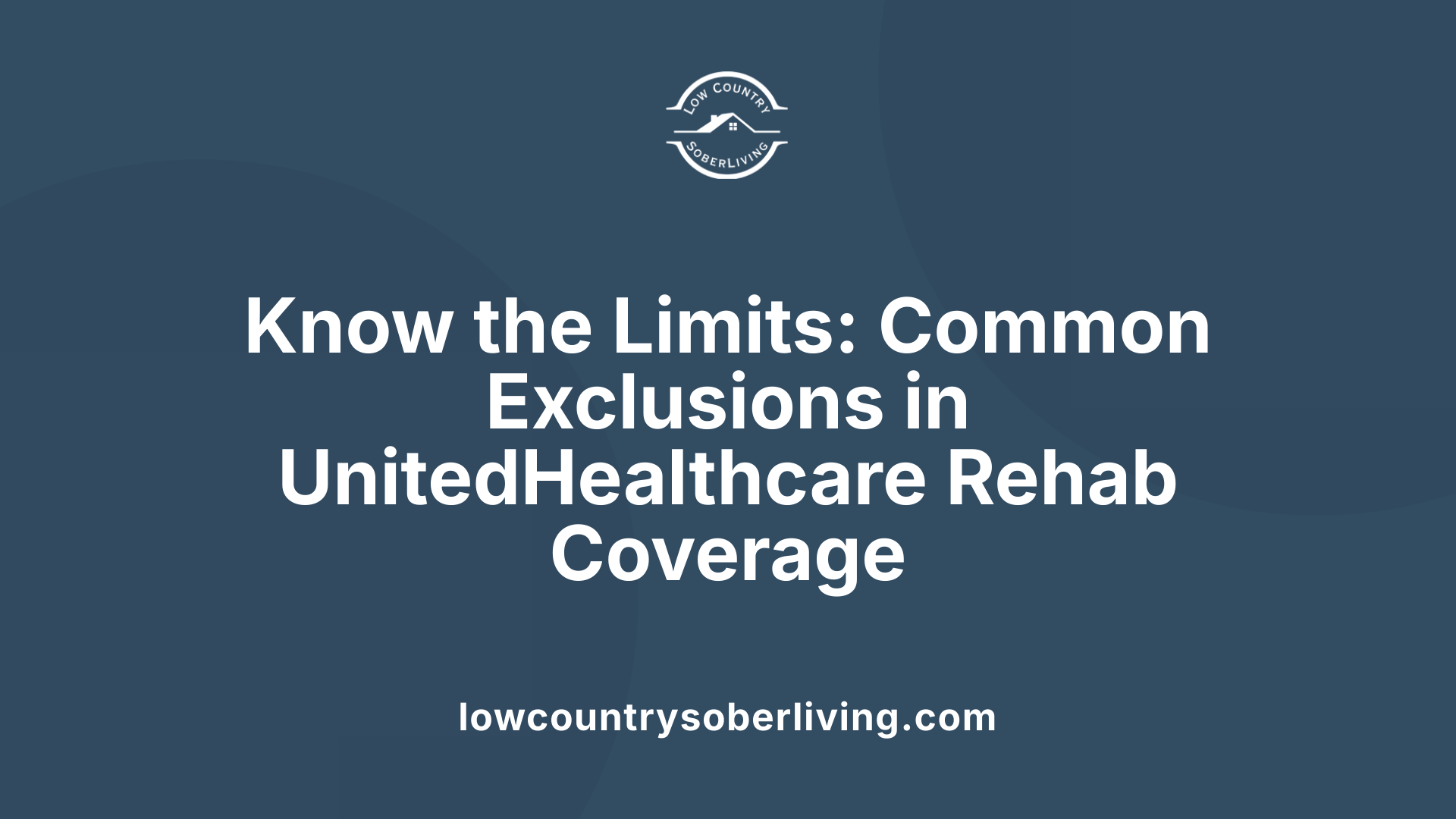
Are there any common services or treatments that UnitedHealthcare does not cover?
UnitedHealthcare aims to provide comprehensive coverage for many health services, including drug and alcohol rehab treatments such as detox, inpatient, outpatient, and medication-assisted therapies. However, it’s important to recognize some standard limitations and exclusions.
Some services are rarely covered under UnitedHealthcare plans because they are outside the scope of medically necessary treatments. For example, cosmetic surgeries and fertility procedures are normally excluded unless deemed essential for specific medical conditions.
Experimental or investigational treatments, which are still in the research phase and lack sufficient evidence for safety or effectiveness, are typically not covered. This includes some new or alternative approaches to addiction treatment that have not yet gained widespread approval.
Coverage caps are common, meaning there could be limits on the number of therapy sessions, inpatient days, or total treatment costs under a given plan. For example, outpatient rehab might have a maximum benefit of around $3,000 per year, and inpatient stays could be capped at certain durations.
Out-of-network services present another common limitation. While some plans may cover out-of-network care, it often involves higher copayments, coinsurance, or deductibles. Members are encouraged to verify whether their chosen rehabilitation providers are within the UnitedHealthcare network to minimize out-of-pocket expenses.
Prior authorization is required for many services, especially inpatient or intensive outpatient programs. Failure to obtain necessary approvals may result in denials or reduced coverage.
To fully understand the scope of coverage and identify potential limitations, members should review their Summary of Benefits and Coverage documents or consult directly with UnitedHealthcare’s customer service. Knowing the specifics of your policy can help avoid unexpected costs and ensure access to the needed treatment.
Practical Tips for Accessing Rehab with UnitedHealthcare
How do I access rehab services through UnitedHealthcare?
Getting started with rehab services through UnitedHealthcare involves a few important steps to ensure your treatment is covered and cost-effective. First, use the insurer’s provider directory to find in-network rehab centers. Choosing an in-network facility is crucial, as it typically reduces out-of-pocket expenses compared to out-of-network providers.
Before initiating any treatment, verify if your specific plan requires prior authorization for services such as inpatient rehab, detox programs, or specialty treatments. You can do this by calling UnitedHealthcare directly or through your online member account. Securing approval prior to treatment helps to avoid claim denial and ensures coverage.
Members are encouraged to utilize resources like UnitedHealthcare’s 24/7 Substance Use Helpline. This confidential service offers support, guidance on suitable treatment options, and assistance in connecting with in-network providers.
Additionally, you can log into your online account or mobile app to review benefits, confirm coverage details, and locate nearby approved facilities. Engaging your primary care provider or addiction specialist during this process can also help coordinate care and streamline access.
By planning ahead and verifying your benefits—including checking whether you need prior approval—you can navigate the process more smoothly. Collaborating with authorized providers and utilizing the resources offered by UnitedHealthcare can make the journey to recovery more accessible and less stressful.
Navigating Insurance and Securing Treatment Support
Understanding whether and how UnitedHealthcare covers rehab services is essential for anyone seeking addiction treatment. While most plans include coverage for inpatient, outpatient, detox, and medication-assisted treatments, the specifics can vary widely based on individual plans, location, and provider networks. Members are encouraged to verify their benefits early, utilize in-network resources, and seek assistance through support helplines provided by UnitedHealthcare. Complying with prior authorization requirements and knowing the limitations and exclusions can prevent unexpected expenses. Ultimately, legal protections like the Mental Health Parity & Addiction Equity Act work toward ensuring fair access to necessary services. With proactive planning and informed choices, individuals can leverage their insurance benefits to facilitate effective recovery journeys.
References
- Rehabs in Florida That Accept United HealthCare Insurance
- Substance Use Helpline | Member resources | UnitedHealthcare
- United Healthcare Insurance Coverage for Rehab Treatment
- Medicare coverage for inpatient rehabilitation - United Healthcare
- United Healthcare Drug and Alcohol Rehab in Florida
- Find Rehabs that Accept United Healthcare Insurance - Recovery.com
- United Healthcare Insurance for Addiction Treatment

